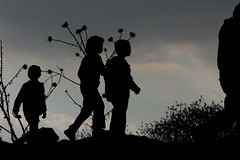 Researchers at the UC Davis MIND Institute have done a study that reveals that an infant who has an older sibling who has autism has an increased risk of developing autism as well. The percentage of risk is actually higher than had previously been estimated. Parents of a child who has autism should make sure that child’s younger siblings are screened for this disorder.
Researchers at the UC Davis MIND Institute have done a study that reveals that an infant who has an older sibling who has autism has an increased risk of developing autism as well. The percentage of risk is actually higher than had previously been estimated. Parents of a child who has autism should make sure that child’s younger siblings are screened for this disorder.
The study involved 664 infants. The average age of the infants at enrollment was about 8 months. Two thirds of them were younger than 6 months of age. Researchers followed the babies development until the infant was 36 months old.
The babies who were in the study were part of the Baby Siblings Research Consortium. It is an international network that is supported by Autism Speaks. The consortium pools data from many individually funded research sites in order to help study infants that are at a high risk of developing autism, (because they have an older sibling that has an autism spectrum disorder).
When the infants reached 36 months of age, they were tested for autism. 132 of the 664 infants in the study met the criteria for an autism spectrum disorder. The researchers note that if an infant has an older sibling who has autism, then the infant has a 19% risk of also having autism. Previously, this risk had been estimated at somewhere between 3% and 10%.
Researchers found that male children have a higher risk of having autism than female children do. The babies in the study who were boys had a 26.2% risk of the disorder, while the babies who were girls had a 9% risk of being diagnosed with autism.
Overall, the risk for all study participants was 18.7%. In families that had one older child who had already been diagnosed with autism, the risk jumped to 20.1%. Only a small group in the study, 37 families, had more than one older child who had autism. For this group, the risk of the younger infant having autism goes up to 32.2%.
What should parents take from all these numbers? If you have a child who has been diagnosed as having an autism spectrum disorder, you need to realize that there is an increased risk that this child’s younger siblings will also have autism. Right now, there really isn’t a way to calculate exactly how high that risk will be for your family.
The researchers suggest that parents who already have a child who has autism should keep a close watch on that child’s younger siblings for signs that they have the disorder as well. It is very important to start treatment as early as possible.
Image by Yaniv Ben-Arie on Flickr

